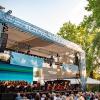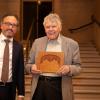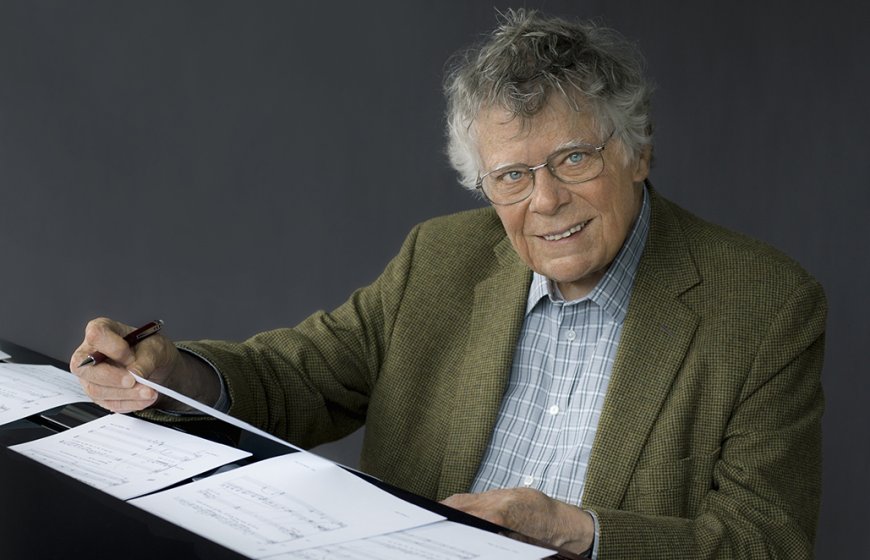
In his 92nd year, Gordon Getty remains a working composer. On June 20 and 22, the San Francisco Symphony and Chorus are set to premiere three of Getty’s works, flanked on the program by Mozart’s Ave verum corpus and Verdi’s Requiem.
A longtime funder of the Symphony and San Francisco Opera — and a co-founder and funder of this publication — Getty was raised with his siblings in San Francisco by his mother Ann Rork. With her, they attended performances of classical music and ballet and hosted home visits by such luminaries as soprano Licia Albanese.
Getty studied English literature and wrote poetry at the University of San Francisco and earned a degree from the San Francisco Conservatory of Music. He began actively composing and appearing on SF Symphony programs in the 1980s, and his first opera, Plump Jack, premiered in 1987. (A revised version was recorded by Pentatone and released in 2012.)
A lifelong poet, Getty has penned the librettos for most of his operatic works. Earlier this year, a recording of his fourth opera, Goodbye, Mr. Chips, was released by Pentatone. His catalog for that label also includes compositions for orchestra, chorus, solo vocalists, and piano.
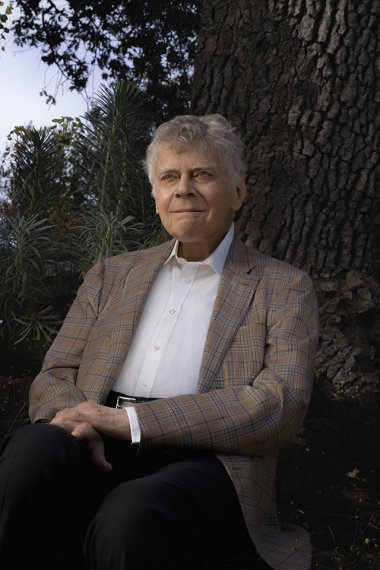
Getty has received numerous awards and honors, including the Gold Baton of the American Symphony Orchestra League (now the League of American Orchestras), the designation of Outstanding American Composer from the John F. Kennedy Center for the Performing Arts, and the European Culture Prize. He was inducted into the Opera Hall of Fame in 2020 as part of the inaugural class and that same year was acclaimed as Legacy Honoree and Artist in Residence by the Young People’s Chorus of New York City.
At his home in Pacific Heights, Getty spoke with SF Classical Voice about the upcoming SF Symphony concerts.
Lisa Delan, director of both your company Rork Music and your foundation, told me how one of the songs that we’ll hear as a world premiere, “Saint Christopher,” was something you envisioned as a poem when you were quite young and were reacquainted with last year, while you were assembling a book of your poetry and lyrics.
“Saint Christopher” is an example of stuff I wrote in [my] college days. And it’s very suitable to set to music, but I never got around to it. So after I put it in the book, I said, “Let’s do something with it.”
Tell me a bit of what you did.
I bring in a Baroque organ at the end, kind of like César Franck.
Do you regard yourself as religious? There seems to be a religious theme with all three composers in this concert.
Verdi would have probably considered [me] an atheist because I think he spoke to God every day. Well, I’m an interesting case — I’m an agnostic, and I speak to God every day.
There are spiritual elements in a number of your works, including Goodbye, Mr. Chips, from which you’ve excerpted the Intermezzo we’ll be hearing on this program.
That’s going to be the biggest success! In one part, I use marimba of all things, with strings below. The world needs the spirit of the story of Mr. Chips right now and a lot of it. I’ve called Chips not only a mensch but a gentleman, not afraid to fight anyone on principle.
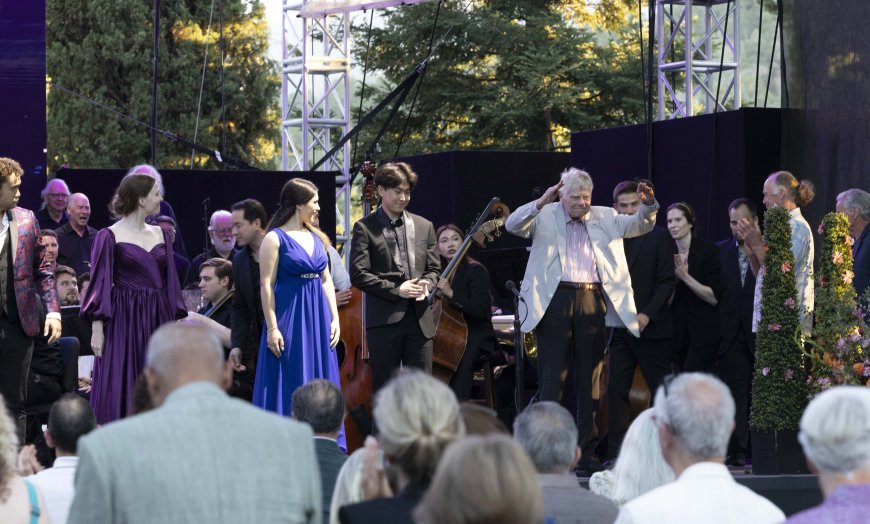
And “The Old Man in the Snow” completes your part of the program at Davies Symphony Hall, as well as your trilogy of poems about the titular old man that you’ve set to music. We heard the world premiere of this at Festival Napa Valley last year. So you and your lyrical old man are peers now. Are you and he conversing through music?
It’s a little more him than me, and it’s the whole world that we have in mind. Think what it is about this man which [strikes us] as beautiful and memorable and special.
Though we intend to have you around for a good while, continuing to entertain us by sharing with us, do you and your old man both find yourselves thinking about how you’ll be remembered?
I think I’m different from him in that I realize I’m a composer and I have a duty to get that out. I’m not sure he has that feeling, bless his heart.
Maybe putting him in a poem and then in a song gives him purpose.
It’s true. Something inside me says, “Gordon, you’ve got to do this poem, this verse, this music.” I mean, there’s no money in it.
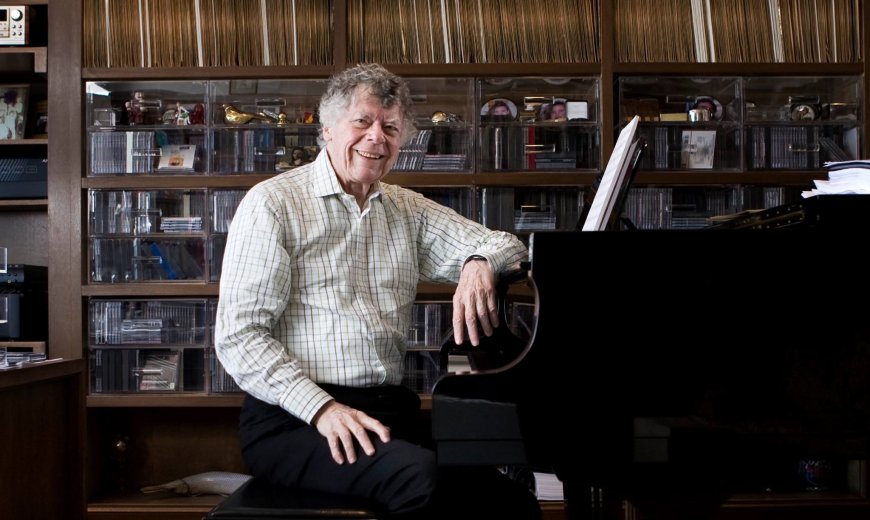
How do you feel about being positioned in a program between Mozart and Verdi? Was either an influence?
As you know, I don’t love Mozart as much as I’m supposed to, but he did have a sense of the stage, certainly. And Verdi, the Requiem is such a magnificent thing. Even in his earliest operas, this guy was so good at those big slam-bang scenes.
You and Verdi both get a lot of expression across the orchestra.
But he was different. He goes back to an age just before the influence of Wagner and later Puccini. He depends much more on woodwinds than I do. I use more keyboard instruments, pitched percussion, and harp.
You’ve outlived Verdi by four years so far. How’s your health?
The doctor thinks I’m still a teenager. [Chuckles.]
How are you spending your 10th decade?
I’m writing economics papers, including a recent one on a subject not much discussed: portfolio management for the average household. And I’m working on the words and music [for] Le Jongleur de Notre Dame. I don’t mind telling you — I remember that when I was a little boy hearing that story on the radio, I [would] cry like a baby. In my version, the juggler is an old man about to die.
You’re outliving your own characters, too.



